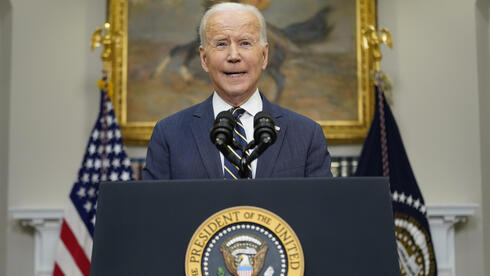4 View gallery
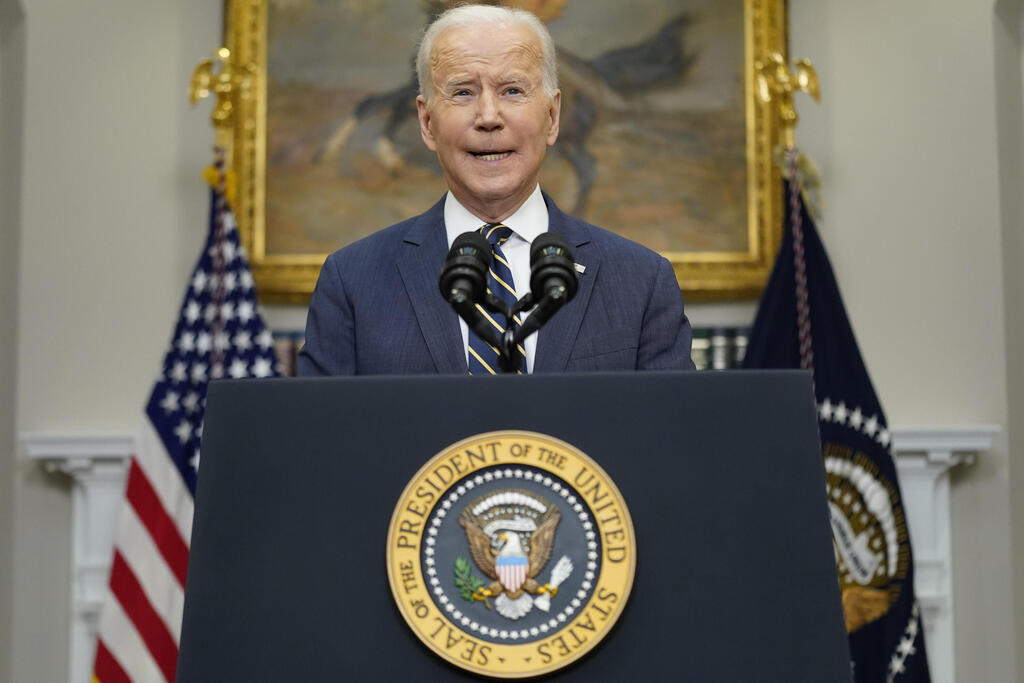

US imposes sanctions on companies evading Iranian and Russian sanctions
(Photo: Associated Press)
BIS, a division of the U.S. Department of Commerce, said “nine Pakistani entities have been added.” [to the ban list] For acting as a front company for the Advanced Engineering Research Institute, which went public in 2014, and seven other companies for contributing to Pakistan’s ballistic missile program. ”
Thea D. Rozman Kendler, assistant secretary of commerce for export control at BIS, said the United States will continue to thwart organizations that “seek to evade our controls and endanger our national security.” .
Kendler added: “Plans such as Iran’s weapons of mass destruction program, unmanned aircraft program, and Pakistan’s ballistic missile program pose serious threats to U.S. national security and cannot be supported by U.S. technology.” he added.
BIS Assistant Secretary of Commerce for Export Enforcement Matthew S. “If we identify parties transshipping goods, we will take action.” Today’s listing also makes clear that foreign parties face consequences if they take delaying or evasive actions with respect to our end-use checks. ”
4 View gallery
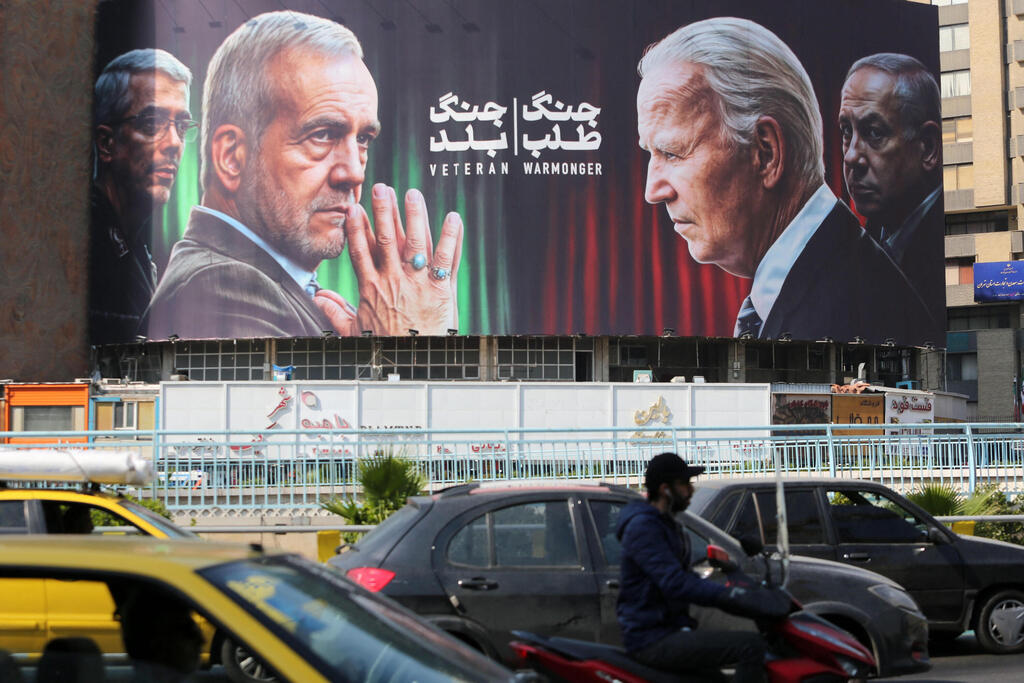

Iranian poster depicting Biden as a warmonger
(Photo: Atta Kenare/AFP)
In April 2024, the U.S. State Department took action against four entities involved in the proliferation of weapons of mass destruction. These organizations were accused of supplying critical materials and technology to Pakistan’s ballistic missile program, including long-range missile capabilities.
“Three of the targeted companies are based in China and the fourth is based in Belarus,” the State Department said, noting that they provide missile-related items to Pakistan’s programs. .
Pakistan’s Foreign Ministry has expressed concern over US sanctions on entities allegedly linked to Pakistan’s ballistic missile program, with Spokesperson Mumtaz Zahra Baloch saying, “Similar lists have been published previously without any evidence being shared.” has also occurred,” he said. She suggested that Islamabad is open to discussions on transparency to protect legitimate commercial operations from “undue influence of export controls.”
4 View gallery
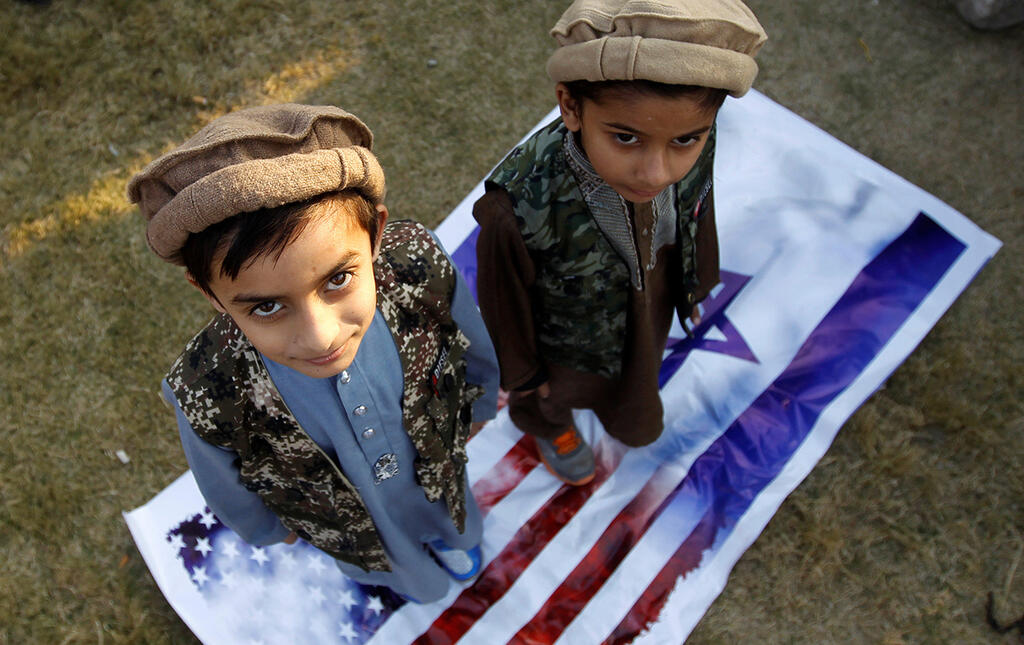

Pakistani children step on US and Israeli flags
(Photo: Reuters)
Pakistan’s ballistic missile program is a key element of its national defense strategy, developed in response to regional security challenges and its long-standing rivalry with India. As part of Pakistan’s strategic deterrence and conventional attack capabilities, the country’s missile systems are designed to fire both nuclear and conventional warheads.
To manage the accuracy and safety during operation of these weapons, especially missiles, Pakistan has introduced a state-of-the-art command and control infrastructure. Additionally, specialized security forces operating under the direction of three-star generals are exclusively deployed to protect these strategic assets.
The arsenal consists primarily of short- and intermediate-range ballistic missiles, and cruise missile capabilities are also continually advancing.
This security framework aims to prevent unauthorized access, protect the country’s defense assets and ensure a quick and effective response in any scenario.
This arsenal consists primarily of short-range and intermediate-range ballistic missiles, with continuously advancing cruise missile capabilities.
Among Pakistan’s short- and medium-range missiles, the Shaheen III has a range of approximately 1,710 miles, while the Ababil has a range of up to 1,400 miles.
Islamabad has consistently emphasized that advances in missile technology are aimed at maintaining a credible deterrent and achieving strategic balance in South Asia.
Dr. Maria Sultan, director of the Islamabad-based South Asia Strategic and Stability Institute University and a leading expert on Pakistan’s defense and security, told The Media Line: Affects development. ”
“Furthermore, if a listed company does business with the United States, it suggests that there was a compliance violation on the U.S. side,” she continued.
Sultan further said, “The United States has not only been the sole facilitator of the arms race in South Asia but also contributed to the development of India’s defense industry since STA-1, and therefore, as the leader of the non-proliferation regime. “I lost my role,” he added. ”
STA-1 (Strategic Trade Authorization-1) is a U.S. designation that allows certain countries access to advanced and sensitive U.S. technology, including dual-use civilian and military products. In 2018, India became the first country in South Asia to receive STA-1 status.
“With US Middle East policy at an impasse, the creation of a false narrative around sanctions against Pakistani and Iranian companies serves to deflect pressure, and the Joint Comprehensive Plan of Action (JCPOA), which has so far been undermined by the US “It reflects an irresponsible and unilateral approach to sanctions against Iran,” the Sultan explained.
4 View gallery
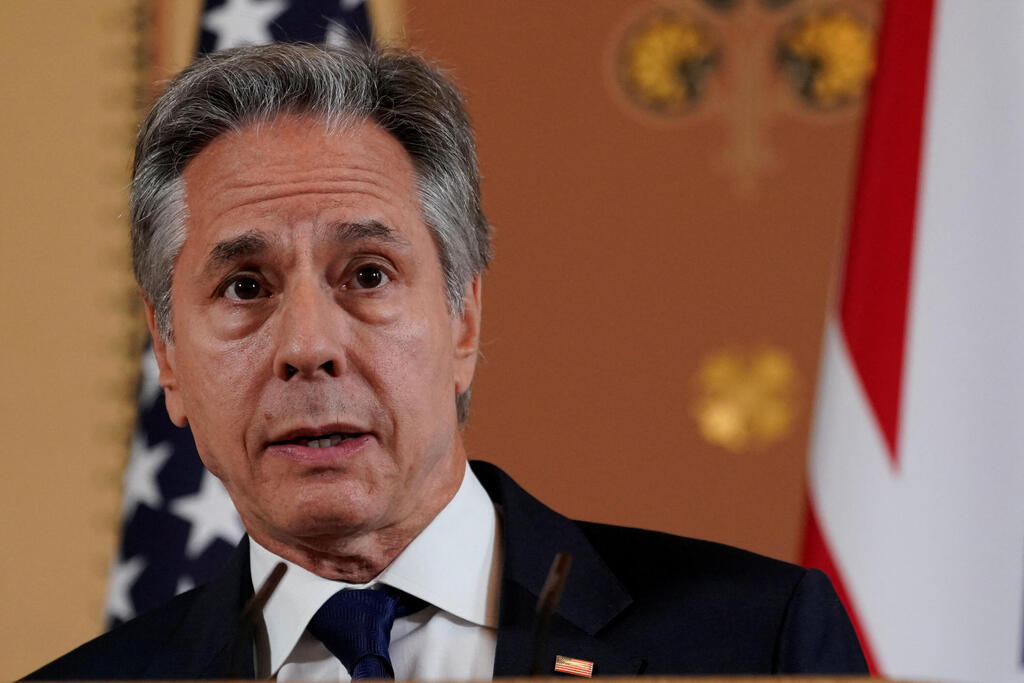

Secretary of State Blinken
(Photo: Alberto Pezzali/Pool/Reuters)
The JCPOA is a 2015 agreement between Iran and six countries around the world (the United States, the United Kingdom, France, Russia, China, and Germany) that limits Iran’s nuclear program in exchange for sanctions relief.
He added, “The timing and nature of these sanctions appear to be more aimed at placating a domestic audience than truly addressing missile proliferation,” adding, “This strategy ultimately “It hinders the efforts needed to curb missile proliferation.”
-
This story was written by Arshad Mehmood and reprinted with permission from: media line.
Get the Ynetnews app on your smartphone.

